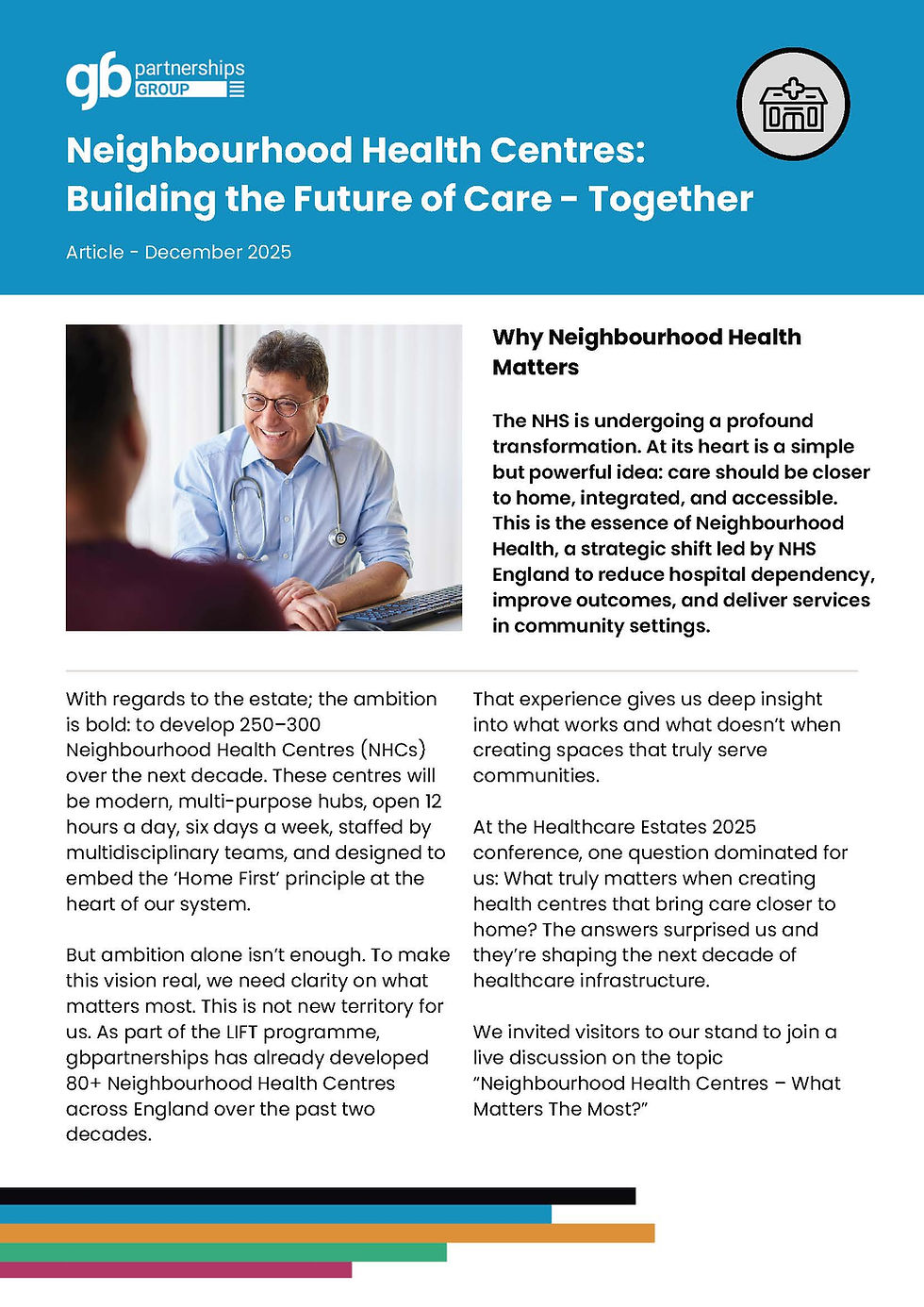Protecting tenants and patients against exposure to viruses in water.
- gbp group

- Nov 18, 2020
- 2 min read
During the pandemic, landlords and people who manage premises have a duty to protect tenants and patients by identifying any risks and implementing control measures against potential risks associated with Legionella / Pseudomonas.
With one of the primary pieces of advice being to regularly and thoroughly wash hands to prevent the transfer of the disease, it means now, more than ever, the provision of clean and safe water by utilities is vital to stop the disease spreading. During times of crisis, various questions are being asked over whether COVID-19 can be transferred via water and wastewater. The current advice based on existing knowledge and research, is that there is no indication that SARS-CoV-2 can persist in drinking water. For wastewater, some recent studies have found Ribonucleic Acid (RNA) fragments but not infectious virus in wastewater. The morphology and chemical structure of this virus are similar to those of other coronaviruses for which there are data both on their survival in the environment and on effective measures to inactivate them. This guidance draws on the existing evidence base and current World Health Organisation (WHO) guidance on how to protect against possible exposure to viruses in wastewater, drinking-water and waste. During these challenging times, gbpartnerships have worked collaboratively with their Facilities Management Service Providers and CHP across their LIFT portfolio, evaluating the changes of use and occupancy variables. In the case of reduced occupancy, there are many risks including water stagnation, this risk can be lessened by increasing the ‘flushing regime’. The FM teams have worked hard to deliver against the changing requirements of the Tenants, in particular, where buildings have been established as ‘hot hubs’. The WHO has advised on air conditioning and infection control, indicating a poorly ventilated building affects air quality and can contribute to the spread of disease, microorganisms such as those causing legionella and tuberculosis, can be transmitted through air conditioning systems if they are not maintained or air exchanges per hour is limited. Now more than ever it is imperative that all parties responsible for managing premises, plan and review their strategy aligned to the Water Risk Assessment. gbpartnerships would like to extend their thanks to their service partners who have adapted to these ever-changing challenges. Lisa Brettelle, Lead Estates Business Performance Manager, is responsible for a team that deliver a wide range of property management services for mixed use, health and social care (LIFT) buildings across London and the South of England.
If you’d like to get in touch with Lisa or a member of the team, please email us at: enquiries@gbpartnerships.co.uk and we will get in touch.
gbpartnerships deliver property management services for 13 LIFT Companies across the country and manage a property portfolio of over 70 buildings, worth c.£850m. This important work is delivered under Management Services Agreements (MSAs) which include finance, estates management and business development services.
Find out more about the Property Management team here.





Comments